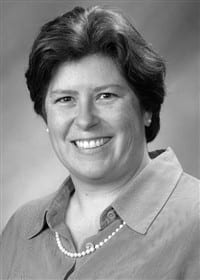Community Hospitals File Lawsuit Against Massachusetts
BOSTON — Six community hospitals, including Holyoke Medical Center and Berkshire Medical Center in Pittsfield, are suing the Commonwealth for millions of dollars in unreimbursed payment for health care services delivered to residents in communities that stretch from Cape Cod to the Berkshires.
The hospitals are known as ‘disproportionate-share hospitals’ (DSH) because at least 63{06cf2b9696b159f874511d23dbc893eb1ac83014175ed30550cfff22781411e5} of their patients are covered by public insurance. While health care reform has brought the state closer to universal coverage, the unintended consequence of that success is that many DSH hospitals are experiencing significant shortfalls in payments as they treat additional patients whose public insurance doesn’t cover the full cost of care.
Other plaintiffs in the lawsuit are Signature Healthcare Brockton Hospital in Brockton, Cape Cod Hospital in Hyannis, Merrimack Valley Hospital in Haverhill, and Quincy Medical Center. The lawsuit was filed on Dec. 1.
The hospitals claim that the state has violated a law requiring financial reimbursement equal to the costs of providing care to Medicaid recipients. The hospitals say that the state has set Medicare, Medicaid, and other reimbursement rates so low that many of them are facing severe financial distress as they fulfill their state mandate to care for more and more individuals covered by public insurance.
“The community hospitals involved in this lawsuit are unfairly bearing the cost of health care reform,” said Michael Collins, CEO of Merrimack Valley Hospital. “The underfunding at Merrimack Valley Hospital in Haverhill and at the other hospitals is a significant detriment to serving our patients and community. All disproportionate-share hospitals deserve fair and equitable treatment with respect to health care reimbursement.”
According to the suit, cumulative state cuts to Medicaid (the state’s MassHealth program) and an additional capping of hospital payments last December have left the hospitals with a combined funding shortfall in excess of $70 million in just the past three years. On average, the state’s Medicaid program has paid only between 40{06cf2b9696b159f874511d23dbc893eb1ac83014175ed30550cfff22781411e5} and 86{06cf2b9696b159f874511d23dbc893eb1ac83014175ed30550cfff22781411e5} of the costs of providing care to the elderly, low-income, and uninsured populations it is supposed to cover.
“The Commonwealth made a commitment to provide access to health care for all citizens, but we cannot do that at the expense of these vital community hospitals,” said state Sen. Michael Morrissey (D-Norfolk). “We all know that resources are tight, but there has to be a way to protect these safety-net hospitals that are so critical to our communities, especially if we can find a way to leverage federal dollars.”
The reimbursement issue took on new life over the summer when Boston Medical Center (BMC), the Commonwealth’s largest disproportionate-share hospital, sued the state, accusing it of reneging on promised Medicaid reimbursement rates. The problem for many other hospitals is the perception that BMC already soaks up too much of the available funding and, by angling for more through the legal system, could harm other facilities.
“We had Boston Medical Center talking about underpayment, and as the case came forward and we began viewing it, we realized that for the vast majority of the case, we could just interchange our names,” Hank Porten, president and CEO of Holyoke Medical Center, told BusinessWest recently. “And that created an issue for us. The concern we had is that, if this proceeded through the litigation or settlement process, Boston Medical Center could end up with a large amount of what’s available for disproportionate-share hospitals.”
While the state has been focused on finding a solution to Boston Medical Center’s lawsuit, the community DSH hospitals handle nearly four times as many patients covered by government insurance, as measured in patient days, than Boston Medical Center and Cambridge Health Alliance combined. The hospitals provide care for more than 1.5 million patients and handle more than 300,000 emergency-care visits annually. Some of the hospitals are the only hospital within 25 miles in their communities.
The hospitals maintain that the unfunded mandates have resulted in significant financial losses as well as prevented or delayed investment in capital projects, equipment, and other updated health care resources for their communities.
“We might not be smart enough to know what amount is fair, but we’re smart enough to know that there are at least two definitions of fair now, and we want the legal system to define for us what is fair,” Porten said. “We should be paid at Boston Medical Center’s rate, or, if we’re all being paid at our rate, then Boston Medical Center shouldn’t get additional money.
“We don’t begrudge Boston Medical what they’ve received; we all need the funding,” he continued. “But there has to be some parity. There should be no difference between the poor of Holyoke and the poor of Boston.”



